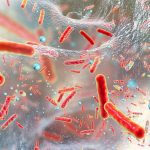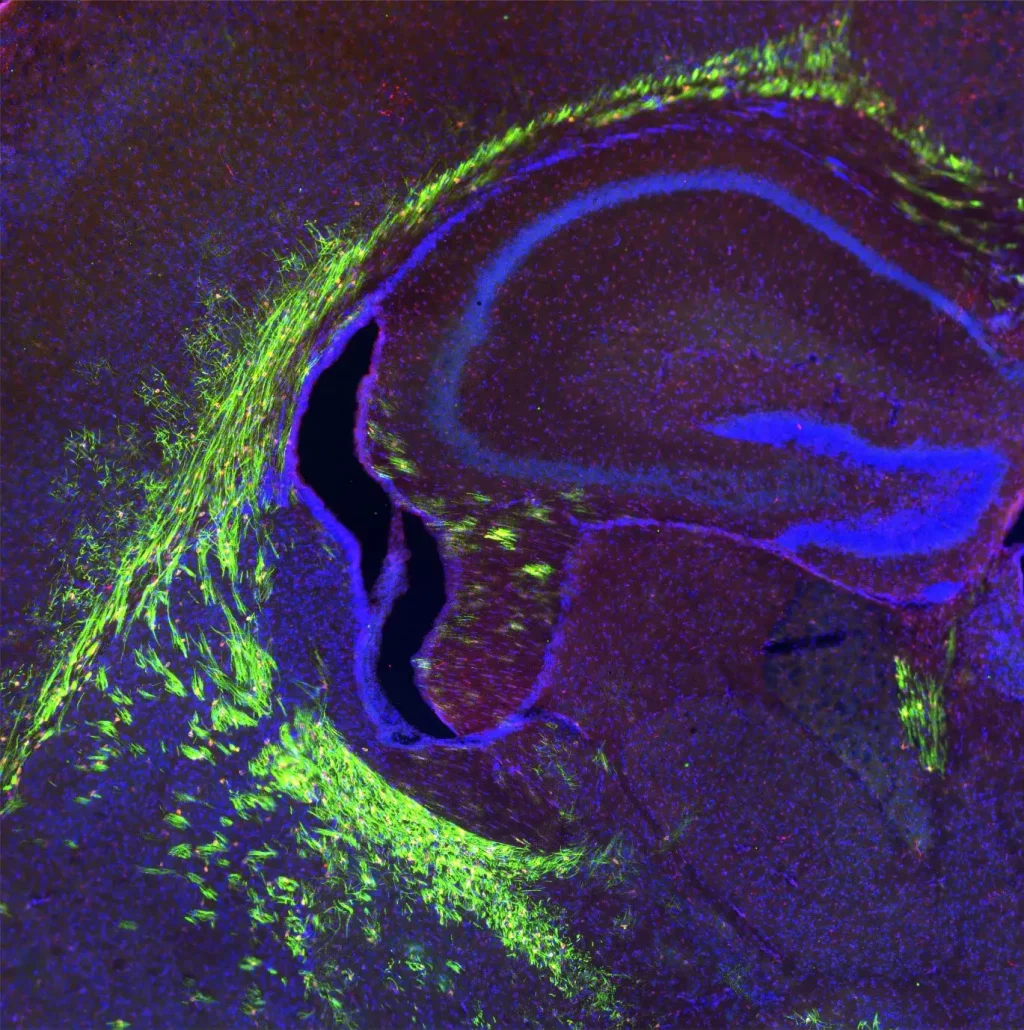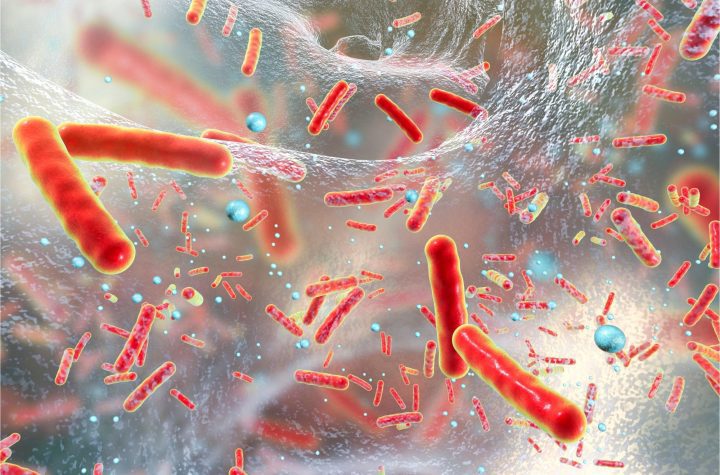Otak model praklinis berkembang dengan akson bermielin (ditunjukkan dalam warna hijau). Ilmuwan dari Singapura telah menemukan peran penting protein transporter Mfsd2a dalam mengatur sel-sel otak yang memelihara selubung myelin, membran penyekat yang menyelubungi saraf. Hasil ini dipublikasikan di Jurnal Investigasi KlinisIni dapat membantu mengurangi efek penuaan pada otak. Mfsd2a mengangkut lysophosphatidylcholine (LPC), lipid yang mengandung asam lemak omega-3, ke otak untuk myelogenesis. Kredit: Dr. Vetrivel Sengotuvil
Para peneliti telah menemukan bahwa protein pengangkut Mfsd2a sangat penting untuk mengatur sel-sel otak yang menjaga selubung mielin yang melindungi saraf. Penemuan ini dapat membantu mengurangi efek penuaan pada otak dan mengarah pada pengobatan gangguan neurologis yang disebabkan oleh berkurangnya mielogenesis.
Para ilmuwan dari Singapura telah menunjukkan peran penting yang dimainkan oleh protein pengangkut khusus dalam mengatur sel-sel otak yang memastikan bahwa saraf dilindungi oleh penutup yang disebut selubung myelin. Temuan ini dipublikasikan oleh para peneliti di Duke-NUS Medical School dan National University of Singapore di Jurnal Investigasi KlinisIni dapat membantu mengurangi efek berbahaya dari penuaan pada otak.
Selaput isolasi yang mengelilingi saraf, selubung mielin memfasilitasi konduksi sinyal listrik yang cepat dan efisien ke seluruh sistem saraf tubuh. Ketika selubung mielin rusak, saraf dapat kehilangan kemampuannya untuk berfungsi dan menyebabkan gangguan neurologis. Seiring bertambahnya usia, selubung mielin secara alami mulai memburuk, itulah sebabnya orang tua kehilangan kemampuan fisik dan mentalnya.
Hilangnya selubung mielin terjadi selama proses penuaan normal dan pada penyakit neurodegeneratif, seperti multiple sclerosis dan[{” attribute=””>Alzheimer’s disease,” said Dr. Sengottuvel Vetrivel, Senior Research Fellow with Duke-NUS’ Cardiovascular & Metabolic Disorders (CVMD) Program and lead investigator of the study. “Developing therapies to improve myelination—the formation of the myelin sheath—in aging and disease is of great importance to ease any difficulties caused by declining myelination.”
To pave the way for developing such therapies, the researchers sought to understand the role of Mfsd2a, a protein that transports lysophosphatidylcholine (LPC)—a lipid that contains an omega-3 fatty acid—into the brain as part of the myelination process. From what is known, genetic defects in the Mfsd2a gene leads to significantly reduced myelination and a birth defect called microcephaly, which causes the baby’s head to be much smaller than it should be.

Dr. Sengottuvel Vetrivel (left) and Prof David Silver (right). Credit: Duke-NUS Medical School
In preclinical models, the team showed that removing Mfsd2a from precursor cells that mature into myelin-producing cells—known as oligodendrocytes—in the brain led to deficient myelination after birth. Further investigations, including single-cell RNA sequencing, demonstrated that Mfsd2a’s absence caused the pool of fatty acid molecules—particularly omega-3 fats—to be reduced in the precursor cells, preventing these cells from maturing into oligodendrocytes that produce myelin.
“Our study indicates that LPC omega-3 lipids act as factors within the brain to direct oligodendrocyte development, a process that is critical for brain myelination,” explained Professor David Silver, the senior author of the study and Deputy Director of the CVMD Program. “This opens up potential avenues to develop therapies and dietary supplements based on LPC omega-3 lipids that might help retain myelin in the aging brain—and possibly to treat patients with neurological disorders stemming from reduced myelination.”
Previously, Prof Silver and his lab discovered Mfsd2a and worked closely with other teams to determine the function of LPC lipids in the brain and other organs. The current research provides further insights into the importance of lipid transport for oligodendrocyte precursor cell development.
“We’re now aiming to conduct preclinical studies to determine if dietary LPC omega-3 can help to re-myelinate damaged axons in the brain,” added Prof Silver. “Our hope is that supplements containing these fats can help to maintain—or even improve—brain myelination and cognitive function during aging.”
“Prof Silver has been relentless in investigating the far-reaching role of Msdf2a ever since he discovered this important lipid transport protein, alluding to the many possible ways of treating not only the aging brain but also other organs in which the protein plays a role,” said Professor Patrick Casey, Senior-Vice Dean for Research. “It’s exciting to watch Prof Silver and his team shape our understanding of the roles that these specialized lipids play through their many discoveries.”
Reference: “Deficiency in the omega-3 lysolipid transporter Mfsd2a leads to aberrant oligodendrocyte lineage development and hypomyelination” by Vetrivel Sengottuvel, Monalisa Hota, Jeongah Oh, Dwight L. Galam, Bernice H. Wong, Markus R. Wenk, Sujoy Ghosh, Federico Torta and David L. Silver, 27 April 2023, The Journal of Clinical Investigation.
DOI: 10.1172/JCI164118

“Kutu buku musik lepas. Pecandu internet bersertifikat. Pencinta perjalanan. Penyelenggara hardcore. “








More Stories
Rumah sakit Colorado dituduh kontaminasi karena peralatan | kesehatan
Penemuan sisa-sisa virus raksasa purba memberikan petunjuk baru tentang asal usul kehidupan kompleks
Para ilmuwan menemukan “oksigen gelap” yang dihasilkan tanpa cahaya di kedalaman lautan